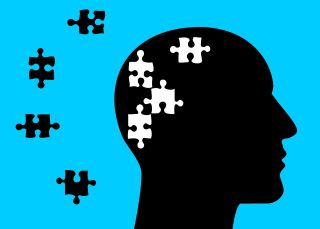False Memories
Does EMDR Cause False Memories?
A deeper look at the relationship between EMDR and memory.
Posted December 16, 2022 Reviewed by Davia Sills
Key points
- Research on EMDR and memory is mixed, but recent studies find eye movements in EMDR have no significant impact on memory.
- Therapists who use EMDR blended with suggestive techniques may cause harm to patients by creating false memories.
- Therapists should focus on the effect of EMDR and not get derailed by attending to whether or not memories of trauma are accurate.

The Case of Dr. X
In 2016, a 15-year-old girl named Sara received 14 therapy sessions from a psychologist in Italy. Sara was referred to therapy by social services following allegations that she had been sexually abused by her boyfriend. Sara refused to participate in the prosecution of her boyfriend. During the social services interviews, Sara was informed that as a young child, she had been sexually abused by a friend of her father, though Sara had no memory of this event.
The sessions with the psychologist were recorded, observed, and used as a training opportunity for social services staff. Dr. X, the psychologist, used EMDR, a popular treatment for PTSD involving eye movements and desensitization processes, along with interviewing Sara about her memories and experiences. At the end of treatment, Sara reported that her sexual abuse as a child had actually been by her father rather than by his friend. Her father’s parental rights were stripped away in 2017.
However, in 2021, Dr. X was convicted of criminal charges for harming Sara, by implanting false memories that her father had abused her. Dr. X was sentenced to four years in prison, and his license to practice psychology was taken away. Dr. X’s therapeutic approach, including EMDR, was blamed for creating these false memories.

EMDR and False Memories
EMDR has a complex and unclear relationship with false memories. In EMDR, individuals are directed to recollect traumatic events, while the therapist uses their finger or other means to cause lateral eye movements while the individual is reprocessing the memories. Research on EMDR generally finds positive results, though the mechanisms of its effect are somewhat unclear, and it’s judged likely that the treatment effect derives more from the desensitization process and less from the lateral eye movements.
In 2009, researchers found that the eye movements in EMDR appeared to increase accuracy of memories and decrease susceptibility to false memories. In this research, the eye movements were performed after being exposed to misinformation. But in 2018, other researchers published results indicating that conducting the eye movements before misinformation actually increased false memories and reduced memory accuracy. Subsequent replications of this research failed to find similar effects, however, and did not demonstrate that EMDR increased false memories or had any significant on memory accuracy at all. These inconsistent results may be due to vagaries of research design, but ultimately leave us where the null hypothesis must be assumed: that eye movements are not impactful on memory.
Psychologist Francine Shapiro founded EMDR, and in her book describing the technique, she offers substantial comments on memory and concerns about potential false memories. She cautions strongly against the use of techniques such as hypnosis along with EMDR, given the known risk of hypnosis creating false memories. Shapiro also notes that memory itself is fallible, and that the very process of trying to recover or investigate a memory can create a false memory (p. 298). She cautions against therapists taking a stance on whether memories are true or not, suggesting that memories can include symbolic elements as well as accurate and inaccurate recollections.
Unfortunately, research on EMDR practitioners finds that a large majority of them (around 90 percent) believe in the idea that trauma can lead to the repression of memories, and that therapy can assist in recovering these memories. Seeing a therapist who believes in repressed and recovered memories dramatically increases the likelihood of a person developing false memories.
Focus on the Results, Not the Memory
Steve Ratcliff is a treasured colleague and extremely experienced EMDR psychotherapist whom I reached out to in order to understand the perspective of EMDR therapists. Ratcliff rejects belief in repressed memories but acknowledges that during EMDR sessions, patients can have strong memories and reactions surface. But it’s important for the therapist not to get derailed into chasing the validity of those memories or trying to investigate the origins of every reaction. Instead, he told me by email: “It’s important for the therapist to convey suspicion and caution about our memories to clients. The therapist should focus on the question of whether or not the overall symptoms are improving or not. Remember that desensitization works, even if there isn’t clarity on the narrative experiences.”

In Italy, as Dr. X was treating Sara, he didn’t use just EMDR, and he apparently didn’t follow Shapiro’s advice. Instead, he asked extremely leading, suggestive, and directive questions to Sara about her abuse, saying things such as “In a certain way, your father is also related with bad experiences of maltreatment and abuse?” (p. 2125). Indeed, linguistic analysis of the session recordings showed that Dr. X talked in sessions far more than Sara, saying an average of 3,291 words a session, compared to 1,219 from his patient. Given Sara's vulnerability, one can raise significant concern that Dr. X didn't just use suggestive technique, but essentially browbeat Sara into these views of her abuse.
At this time, it’s extremely unclear and probably unlikely whether EMDR itself, or, in particular, the eye movements involved, have effects on memory and creation of false memories. But EMDR, when performed by therapists who use suggestive techniques and who encourage patients to believe the validity of unverified memories, is very likely to facilitate the creation of false memories. This has been established by decades of research. Further, those techniques are not only malpractice, but are likely to harm patients. In the case of Dr. X and Sara, these techniques even crossed the line into being a crime.
Therapists who use EMDR, even those who believe in repressed memories, must consider the advice of Shapiro and their therapist colleagues, such as Ratcliff. The content processed or described during EMDR therapies isn’t the true goal. The desensitization is. Therapists should not suggest to clients whether these memories are true or not, but rather should remind patients that memories are fallible and easily contaminated. By focusing on reducing symptoms of anxiety and distress associated with those remembered experiences, EMDR therapists can avoid perpetuating the crimes of Dr. X.




